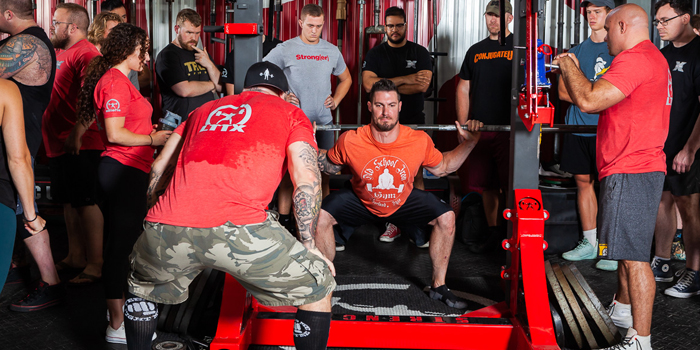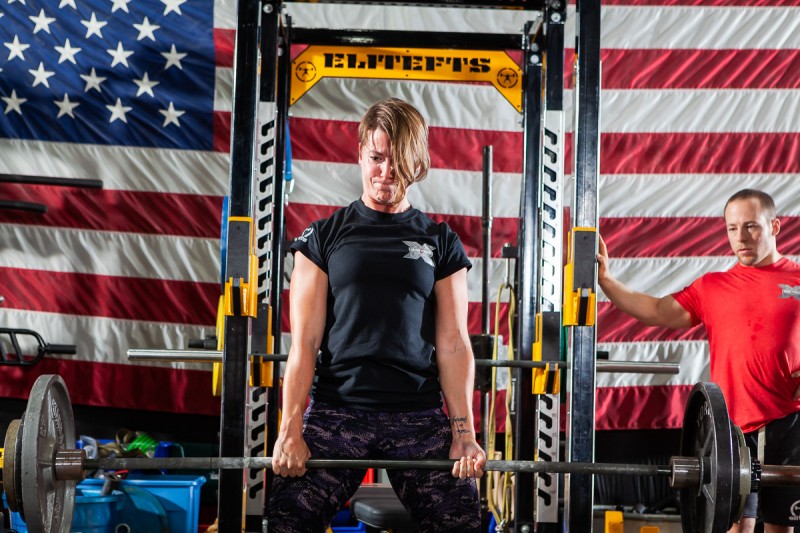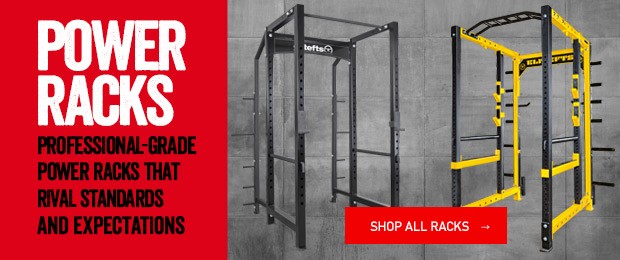
Passion runs deeply through the veins of strength sports and is a crucial value for those who seek to have any measure of sustained success. In order to persevere in training, business, and in life, passion has to be at the foundation. If it isn’t, then the inevitable storms you meet will quickly knock down the house you so nicely built when things were ideal and going well. The longer you train and compete, the more you will see convenience slip away and passion tested. Passion is central to success, which is why you see it as a recurring theme throughout elitefts.
The strongest and most positive values, however, still have their drawbacks. Our greatest strengths also tend to illuminate our greatest weaknesses. While passion drives us to new heights, it can also drive us off a cliff if we don’t balance it with discernment. Because our passion ties so deeply into our emotions, it is easy to over-react emotionally to things that involve our passion. This is one of the biggest challenges passionate lifters face in training and competition. The concept bleeds over into their personal lives as well, but for the purpose of this article, we’re going to focus on the training/competition side of things.
RECENT: 3 Ways to Add a Secondary Squat Day
Training progress is not a perfectly linear path, as the longer you train, the more up and down training becomes. When you begin training and make quick and consistent progress for the first few years, your passion and results feed each other and create incredible momentum that feels like it could last forever. But as the first few years pass by and PRs start to come slower and injuries and life challenges mount, you start to find out what your passion and commitment are truly built on.
For many, it starts out built on the emotional gratification of consistent PRs and success. Then the gratification received on social media adds a whole new layer to this that supercharges our emotional attachment to training success. Now, instead of just the internal gratification of a PR, you may have dozens (or hundreds or thousands) of people providing external gratification through their feedback to your success.

The emotional ties that we build to an unsustainable rate of progress can come back to hurt us as we seek to persevere through the tougher times in training. We’ve all seen (or been) a lifter who misses a lift, has a few bad weeks or months of training, or faces another challenge, and falls apart mentally. We’re all human, and with the passion we have for training, it’s normal for us to feel frustration when things don’t go well. Beyond the initial moments of frustration, however, is where we face a crossroads of where to turn next. For many lifters, these moments of frustration turn into days and weeks of an emotional downward spiral that affects their decisions and self-worth. The emotions we feel in response to challenges in training can quickly take over the steering wheel of our logic and take us down roads we never wanted to go down.
The same goes for competition, and throughout an eight-to-12-hour day at a meet, mental composure is often the difference between success or failure. A missed attempt, a forgotten piece of equipment, or an unexpected schedule change in the warm-up room can cause us to panic and affect our ability to execute our game plan.
Sustained progress in training and competition relies on the ability to take a step back from the emotions of the moment and look at the big picture. Rather than panicking after a few bad training sessions and starting to pick yourself apart mentally, can you step back and clearly look at your goals and objectives? Can you humble yourself and ask for outside feedback from a trusted source? Can you take a deep breath and remember that each set and rep in training is part of the greater year and not just that individual session?
I think you’ll find that if you can detach yourself emotionally from the day-to-day fluctuations in training, you’ll find a sense of measured resolve that allows you to make consistent progress over the long haul. This measured resolve, combined with your foundation of passion, will allow you to accomplish things you might not have dreamed of and will separate you from the rest of those who let discouragement and fleeting emotions guide their decisions. Whether it’s a national competition or a personal goal, controlling your emotions will be key to your success.
Passion and emotions are powerful and necessary tools, but remember that remaining calm and measured during times of stress is equally important. When others let their emotions follow the ups and downs of training and competition, maintain your composure and stay on your course. This will be the thing that sets you apart and will serve as the key to unlocking one of the most difficult challenges in training: sustained success.











1 Comment